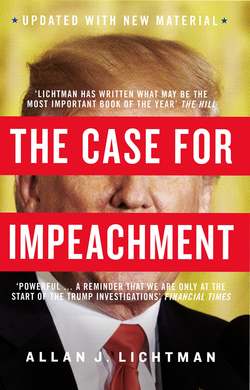Читать книгу The Case for Impeachment - - Страница 9
OBSTRUCTION OF JUSTICE
ОглавлениеAmong those who speak of scandal, there exists a popular mantra—“the cover-up is worse than the crime.” Catchy as it may sound, it’s a saying that risks trivializing the significance of possible collusion between Trump’s campaign and America’s Russian adversaries. It also plays into the hands of Trump and his backers, who’ve hinted that, even if collusion did transpire, its occurrence was not a serious matter. For example, referring to the June 9 meeting, Trump Sr. said, “Most people would have taken that meeting … it’s very standard.” If such conduct were ever to become standard, American democracy would suffer a grievous, perhaps even fatal blow.
Nonetheless, and based on publicly available information only, there is now at least as robust an obstruction of justice case against President Trump as there was against President Clinton. The difference is that, this time, it’s on a vastly more consequential matter than a consensual, personal affair. The cover-up began early in Trump’s term, when he delayed firing then–National Security Advisor Michael Flynn for eighteen days after the Acting Attorney General had warned that the Russians likely compromised Flynn. Since vacating his position, Flynn has said that he has “a story to tell,” a story that Trump likely hopes to keep untold.
To derail the House Intelligence Committee’s Russia investigation, Trump’s White House worked with Committee Chairman Devin Nunes, who served on Trump’s transition team. In private, Trump reportedly asked CIA Director Mike Pompeo to influence the FBI into backing off the Russia investigation. Former FBI Director James Comey testified under oath that Trump asked him for personal loyalty and to “let go” of the Flynn investigation. Trump then fired Comey, only admitting at a later point that he’d had “Russia on his mind” in doing so. He has since engaged in a campaign to discredit Comey, even breaching the separation between the White House and Justice Department by having his press secretary recommend that federal prosecutors consider indicting Comey—a potential witness against Trump—for using an FBI computer to type personal memos about these exchanges with the president. And, as already touched upon, Trump drafted or participated in drafting the misleading response to the June 9 meeting.22
